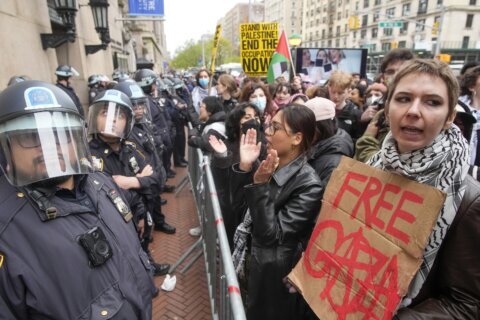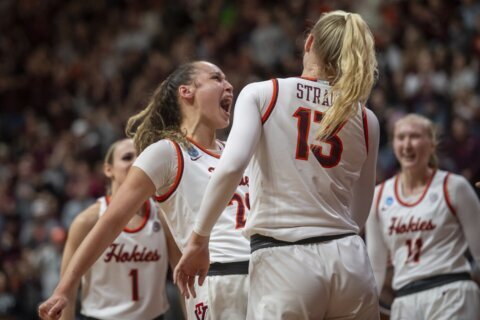Oprah Winfrey, Spike Lee and Vice President-elect Kamala Harris are some household names who have graduated from historically Black colleges and universities (HBCUs).
The majority of HBCUs were founded after the Civil War to provide higher education for African Americans when most schools in the country prohibited Black people from attending.
At the heart of every HBCUs is the Black experience. But beyond the culture is the curriculum.
“Learning about my history, learning about where we come from before slavery. I think it’s something that needs to be discussed because, in regular school, we don’t learn that. That’s not a part of the curriculum,” Chandler Claiborne, a student at Fisk University in Nashville, Tennessee, told “CBS This Morning: Saturday” co-host Michelle Miller.
Since 1867, Howard University in Washington, D.C., has awarded more than 100,000 degrees. The university ranks among the highest producers of the nation’s Black professionals.
“Over the past 50 years, the number one producer of African Americans who went to Harvard’s MBA program was a Harvard undergrad, and number two was Howard,” Howard University President Wayne Frederick said.
HBCUs have also produced 80% of the nation’s Black judges and 50% of its Black doctors, according to the Network Journal.
Vice President-elect Kamala Harris, the first woman of color to be vice president, graduated from Howard University in 1986.
“We have a history of turning out folks who are endued in with social justice,” said Vann Newkirk, interim president of Fisk University.
Some of those people include W.E.B. Dubois, Ida Wells, John Hope Franklin and John Lewis, Newkirk said.
But despite the important role HBCUs have played in America’s education system, Newkirk said many of the colleges and universities are facing funding challenges.
“There were once about 400 historically Black institutions or HBCUs. There are about 100 left and they were the ones that survived and made it through all the tough times,” he said.
About one-third of HBCUs have experienced record increases in applications and enrollment over the past three years, according to the Rutgers Center For Minority Serving Institutions.
Newkirk attributed the rise in the number of applicants to “what’s going on in the nation right now,” particularly the issues of social justice and racism.
“You see students coming back to HBCUs, coming home. We want to make sure that we move more into the mainstream,” he said. “And we become a university that is sustainable.”
That sustainability becomes even more challenging with students in need. According to the American Council On Education, more than 70% of HBCU students have limited finances.
Michael Lomax, the CEO of United Negro College Fund, said HBCUs have rarely gotten large donations, resulting in endowments that are about 70% smaller than other schools.
“For two reasons, one, the Black community is one of the poorest communities in America… and frankly, because philanthropy,” Lomax said.
2020 has brought some of the largest single donations to some HBCUs campuses. MacKenzie Scott, the ex-wife of Jeff Bezos, and Netflix CEO Reed Hastings donated millions of dollars to HBCUs to help with scholarships, campus infrastructure and talent retention.
“These big gifts mean that American philanthropy is beginning to see that equity and equality mean equitable giving as well,” Lomax said.
The donations help students who feel that a price tag can’t be put on what can be gained at historically Black colleges and universities.







